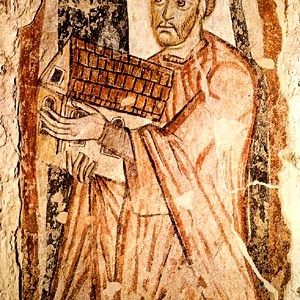American poets, short story writers, and novelists over the years have enjoyed a certain freedom of expression that has allowed them to call a spade a spade. In general, they provide more reliable moral insights than what we can expect these days from politicians and media celebrities, who are restricted by political correctness. T. S. Eliot, Ernest Hemingway, John Updike, and William Faulkner have all, in different ways, strongly denounced induced abortion. Their negative views on abortion are well worth revisiting.
In The Waste Land (1922), an extended poem describing a culture of death, Eliot, without employing the word “abortion,” is nonetheless able to present it as an unspeakable misfortune:
I can’t help it, she said, pulling a long face,
It’s them pills I took, to bring it off, she said.
(She’s had five already, and nearly died of young George.)
The chemist said it would be all right, but I’ve never been the same.
You are a proper fool, I said
What you get married for if you don’t want children?
Ernest Hemingway’s short story entitled, “Hills Like White Elephants” (1927), also speaks against abortion without using the word. Nonetheless, author John Beaumont has appraised it as “the most persuasive argument against abortion ever written”.
Hemingway’s story is set in Spain. An American and his girlfriend have a few drinks in a bar while awaiting the train that will take them to Madrid. The girl makes the remark that the distant hills look like white elephants. In the context of the story, the “white elephants” symbolize life, breasts, and nature. At the same time, they symbolize a heavy financial burden. The American, who is never named, remains uncomprehending. He has never even seen an elephant. Unable to utter the word “abortion”, he views it as merely “a way to let the air in”. He insists that it is “an awfully simple operation . . . it’s not really an operation at all.”
There appears to be an unbridgeable distance between the two characters. She wants his love; he wants his convenience. The fact that the word “abortion” is never spoken intensifies the drama and impresses upon the imagination of the reader the unutterable nature of the act. The conversation is shallow, but veiled. “Cut it out,” he says to her. “You started it,” she retorts. These words obviously have a double meaning.
Nobel Prize Laureate, William Faulkner, published two novels in the year 1939 under the collective title, The Wild Palms. They were released in counterpoint form: one chapter of “The Wild Palms” followed by a chapter of “Old Man,” then a second chapter of “The wild Palms,” followed by a second chapter of “Old Man,” and so on.
In the first story, an intern runs away with a married woman who is the mother of two children. She becomes pregnant with his child and asks him to abort her. He is reluctant at first, but finally consents. In the second story, a convict serving a life sentence is ordered to rescue a pregnant woman who is a victim of the great 1927 Mississippi River Flood. He finds the woman, helps her to dry ground and assists in the delivery of her child.
The irony is apparent. The intern, taught and trained to assist life, performs an abortion. The life convict, supposedly incorrigible socially, assists in the birth of life. The difference between the two has nothing to do with either education or fitting in to society, but how one stands in relation to nature. The convict had not lost his respect for nature, an attitude that allowed him to see the value of new life. The intern, on the other hand, drifted away from nature, having compromised his respect for marriage as well as for his mistress. Consequently, as a result of his step by step isolation from nature, he also lost respect for his own unborn child.
John Updike, in his best-selling novel, Couples (1968), uses abortion as both an event and a symbol. In the story, Piet Hanema, who is married to Angel, has promiscuously pursued other women. He impregnates one of his conquests, a woman by the name of Foxy Whitman. She exclaims that all she knows is that she wants this “thing to stop growing inside of me”. In order to procure an abortion, in this rather sordid novel, Piet must surrender his own wife to Freddy, who has access to the abortionist. Foxy panics just before the procedure. She tried to strike the nurse at the moment of anesthesia. It was at that moment that she wanted to have the baby, but it was too late. One moral transgression led to another until death enveloped everyone. Updike’s comment attests to one disregard to life leads to another: “Death, once invited in, leaves his muddy boot-prints everywhere”.
The writer, unlike the philosopher, is able to employ drama. Whereas philosophy appeals to reason, drama appeals to the emotions. Yet, in the hands of a good writer, emotion is not entirely separated from reason. Therefore, he can be persuasive when writing about a moral issue that may not be clearly seen by the many who simply follow whatever is trendy.
William Faulkner, in his Nobel Prize acceptance address, spoke of what is needed for a writer to make an importance contribution to society: “He must teach himself that the basest of all things is to be afraid; and, teaching himself that, forget it forever, leaving no room in his workshop for anything but the old verities and truths of the heart, the old universal truths lacking which any story is ephemeral and doomed—love and honor and pity and pride and compassion and sacrifice. Until he does so, he labors under a curse”. In so stating, Faulkner has helped us to think realistically about abortion.












